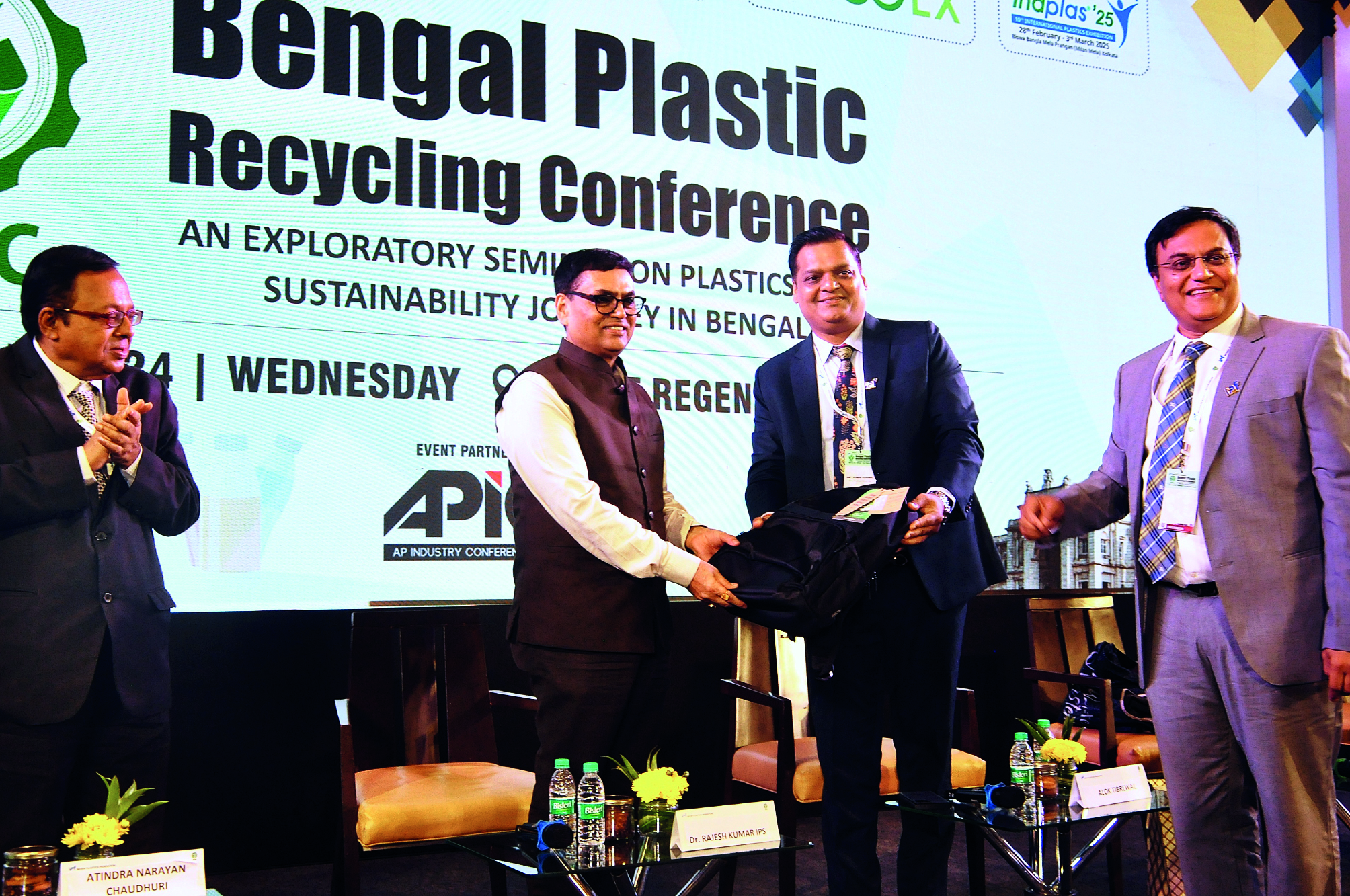State ties up with IPF for cash incentive against plastic waste disposal project

Kolkata: West Bengal Pollution Control Board (WBPCB) has collaborated with Indian Plastics Federation (IPF) to provide cash incentives to people for disposing of their plastic waste.
A pilot project will soon be rolled out in Howrah and will be gradually extended throughout Bengal. The IPF will open up a collection centre equipped with a baling machine where people can hand over their plastic waste against cash incentives. An App is being developed through which the entire process of collection and incentivisation will be done.
After segregation of the plastic waste polymer-wise, the same would be sent to different recycling units. “Plastic is turning out to be a menace because of the irresponsible manner of disposal. We do not discard newspapers and wait for the collector as we get value (some money). We believe that if we get paid for selling plastic, we will not discard them in an indiscriminate manner. We are happy that IPF has come up with a model in this regard and are hopeful of extending this initiative to every block by involving our SHG members once the pilot project is over,” said Rajesh Kumar, WBPCB member secretary during Bengal Plastic Recycling Conference (BPRC) organised by IPF in collaboration with state PCB.
Kumar pointed out that plastic consumption in India is 3 kg per capita which is much less than most countries like the US, South Korea, and China to name a few. “This bears testimony to the fact that we have good practices and we need to channelise the same properly to improve further,” he maintained. Devendra Surana, member of IPF and BPRC chairman said that the cash incentive will be a motivation and will dissuade people from throwing away plastic in an indiscriminate manner. Elaborating on the initiative, Amit Kumar Agarwal, vice-chairman, IPF said that people will be made aware of such collection centres and there will be different days for disposal of different articles made of plastic. The thinner plastic bags which are difficult to recycle and reuse are choking the drainage systems, making river beds and sea beds dead zones and entering our food chain.
A joint study by the WBPCB and Jadavpur University has pointed out that 1680 metric tonnes of plastic are produced in the state daily while the total amount of solid waste generated daily is 13850 metric tonnes.



